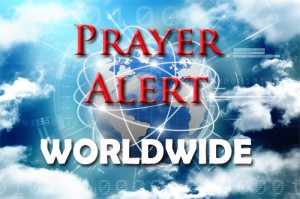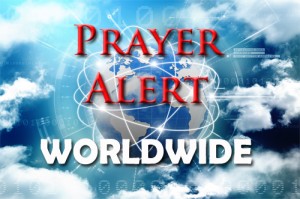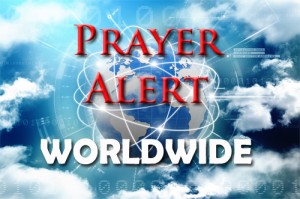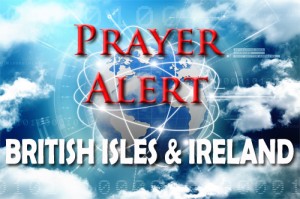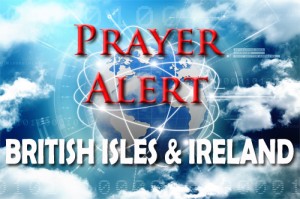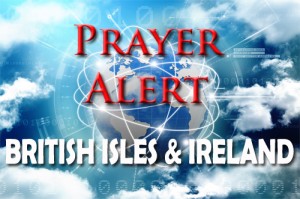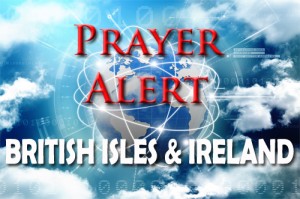
David Fletcher
David Fletcher is Prayer Alert’s Editor.
He is part of a voluntary team who research, proof-read and publish Prayer Alert each week.
If you would like to make a donation towards our running costs, please click here.
Trafficked from Bangladesh and sold into a brothel in Mumbai, Babli started learning Hindi last year at the shelter where she was put up after being rescued. She can now read, write and speak the language fluently, thanks to Hindi classes that help girls identify their trafficking routes and record more accurate testimony. ‘I was brought to Kolkata from Bangladesh, but I couldn't read the names of train stations that I crossed on my way to Mumbai’, Babli said. Two northern Hindi-speaking towns of Varanasi and Gorakhpur have been identified as hubs in the trafficking routes towards the major cities. Activists say that identifying routes is important - not only to step up police vigilance in these areas, but also to protect the girls who go back home after a court case and are once again exposed to trafficking risks. An inadvertent outcome of these lessons at the shelter is that some of the girls have obtained places in regular schools this year.
Malegapuru Makgopa, South Africa’s health ombudsman, has said that 94 mentally-ill patients died of starvation, dehydration and diarrhoea at care centres last year. The deaths followed a ‘reckless’ attempt by the government to save money by transferring patients from a specialised institution to centres with ‘invalid licences’. Mr Makgopa released his findings in a report entitled ‘94 Silent Deaths and Counting’. Visibly angry, he described the deaths as unlawful and called on law enforcement agencies to take up the cases. His investigation was prompted by complaints from families who were desperately searching for their relatives. A total of 1,900 patients were transferred by the Gauteng health department to various unregulated care organisations. The findings have led to the resignation of the province’s health minister.
Colombia has announced a crop substitution programme to eradicate the raw material for cocaine. The Farc rebel group relied on cocaine production to fund its insurgency and controlled much of the industry, but a joint programme between rebels and the government will offer farmers monthly payments if they voluntarily destroy their crops. They will also be offered loans and guidance about planting alternatives such as fruit trees and cacao. This was agreed as part of Colombia's peace accord, which was finally ratified in December. The government will invest $340m (£271m), which would benefit 50,000 families. The target is to destroy 100,000 hectares this year, to bring coca levels down. But the preferred strategy is winning over the estimated 64,000 peasant families dependent on the coca trade. ‘This is much more cost-efficient, and furthermore ensures that territories are transformed and people's lives are changed’, said a government representative.
(Updating last week’s Prayer Alert article) On Sunday Judge Osama Ahmed Abdulla found Czech national Petr Jašek guilty of espionage. He was sentenced to life imprisonment plus a further three and a half years and a fine of 100,000 Sudanese pounds (approx. £12,000). Rev’d Abduraheem and Mr Abdumawla were sentenced to ten years’ imprisonment for espionage and a further two years for inciting hatred between sects and for propagation of false news. Lawyers representing the men intend to appeal the verdict and sentences. Joel Edwards of Christian Solidarity Worldwide said, ‘We are profoundly dismayed by this verdict. The serious charges against these men were wholly unwarranted and the excessive sentences unjustified, given the paucity of evidence against them. These men are not spies; they were simply driven by compassion to source finance for the treatment of a man with severe injuries. We call for the annulment of the verdict and the immediate release of these three men.’
Jadine Louissaint is a second-generation Haitian born and raised in the USA. While growing up, she experienced the stigma associated with her culture and ancestry, and tried to escape from that social disadvantage through education and a good career. She trained as a nurse and did an MBA in healthcare, but in 2015 realised that something was missing from her life. She began to seek God through prayer and fasting. He showed her that His will and purpose for her life was not only to embrace her culture and heritage for herself, but to seek to empower young Haitian women and girls to effect positive change in their country - spiritually, socially, and culturally. In response, she founded TransforMe Ayiti (Transform Haiti), which seeks to provide the next generation of women leaders and innovators with tools for success. Jadine’s vision is to help Haiti become a self-sustained country, by investing in its most precious resource: the youth, specifically young women.
Being a pastor's son is never easy, especially as there is a lot of pressure to do good and maintain the right image. Hillsong United frontman Joel Houston knows this feeling very well: his father is Brian Houston, senior pastor at Hillsong Church. Instead of embracing the pastor's kid image, Joel says he tried to shake it off: ‘I grew up a pastor's kid looking for an excuse, honestly, to run away from the pressure of being a pastor's kid.’ But Joel says God knew better. Try as he might to escape his identity, he always ended back at his roots. He thought he knew what he was doing, but God took all of his plans and said, ‘Watch how I'm going to make this work.’ Joel said God definitely has a sense of humour, since he ended up serving in the ministry he swore he wanted nothing to do with. He says God believed in him even during moments when he doubted himself, and he assures other lost souls that they do not need to be perfect to serve God. ‘You don't have to be super-talented, or have it all together - God is all about using people who just make themselves available,’ he says.
‘About midnight Paul and Silas were praying and singing hymns to God, and the other prisoners were listening to them.’ (Acts 16:25) Lives can be changed for good in prison. Praise God for all who work in prisons. Pray for protection for prison officers and their families. Also, pray for all involved in the Prison HOPE initiative to link churches, prison chaplains and organisations involved with prisoners, former prisoners and their families. Consider: how could your church pray for and link with the local prison?
(Written by Bishop James Langstaff, Bishop to Prisons)
On Tuesday the Supreme Court gave the responsibility for Brexit back to Parliament. The consequences of that ruling are making themselves felt, the most important being the bill on triggering Article 50 that the Government published yesterday. Yet the bill is not the very first fruit of the court’s constitutionally unanswerable decision. Until she stood up at Prime Minister’s questions on Wednesday, Theresa May was also insisting there would be no white paper on Brexit goals either. Yet, faced with a newly empowered House of Commons, Mrs May has been forced into a U-turn on that refusal too. Within 48 hours, the Government has been compelled to take Parliament more seriously. Mrs May changed her mind because of parliamentary numbers. This Government has a working majority of only sixteen: if the main opposition parties can find common cause with pro-remain Conservative MPs, that majority is threatened. Note: Scotland, Wales, and Northern Ireland now have no formal power of veto over withdrawal.
Thousands of National Health Service (NHS) patients have had their data accessed by the Home Office as part of a crackdown on illegal immigration. The data are made up of non-clinical information, which includes names, dates of birth and the individual’s last known address. An investigation by the Guardian revealed for the first time the extent and details of Home Office requests for information. Between September and October 20126, 2,224 such requests were made: in 1,659 cases the details were traced, in 516 there was no trace, and in 69 instances requests were turned down. The number of requests has risen threefold since 2014, as the Government has toughened its stance on illegal immigration. Data can be requested about people who have absconded from immigration control, escaped detention, exceeded their time in the UK, sought to obtain leave to remain by deception, or failed to comply with reporting restrictions. It should be noted that NHS Digital retains the right to refuse requests which it deems to be against the public interest.
Last Saturday Canon Joanna Penberthy was consecrated as Bishop of St Davids - the first female bishop in Wales. Her consecration marks the end of a journey that the Archbishop of Wales, Dr Barry Morgan, said had been ‘long and hard’ for the women of the Church - ‘first to be made deacon, then priest, and now bishop’. The Church in Wales had started debating women in the episcopate in 2005. After a setback in 2008, a bill was carried in 2013, and a Code of Practice made provision for those who remained opposed. Bishop Joanna’s election had been determined by her gifts and not her gender, Dr Morgan told the 500-strong congregation. He suggested that the liturgical confession might spur collective reflection on how the Church had impeded women’s ministry. His address praised the women for ‘daring to trust and daring to hope’, and for not allowing themselves to become cynical or bitter.

